4-Cyanobenzoyl chloride
- CAS NO.:6068-72-0
- Empirical Formula: C8H4ClNO
- Molecular Weight: 165.58
- MDL number: MFCD00001822
- EINECS: 228-005-5
- SAFETY DATA SHEET (SDS)
- Update Date: 2024-01-22 16:43:48
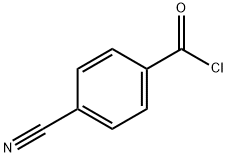
What is 4-Cyanobenzoyl chloride?
Chemical properties
almost white to beige crystalline powder
The Uses of 4-Cyanobenzoyl chloride
4-Cyanobenzoyl chloride has been used in the synthesis of new liquid crystalline heteroaromatic compounds containing the five-membered isoxazole, tetrazole and 1,2,4-oxadiazole rings. It has been used in the synthesis of substituted benzoate esters and to study their excited-state behavior.
Definition
ChEBI: 4-cyanobenzoyl chloride is an acyl chloride consisting of benzoyl chloride in which the hydrogen at position 4 is replaced by a cyano group. It is a nitrile, a member of benzenes and an acyl chloride. It is functionally related to a benzoyl chloride.
General Description
4-Cyanobenzoyl chloride participates in the benzylamine acylation of Argopore MB-CHO resin in the presence of pyridine and catalyst. It reacts with 4-hydroxy-2,2,6,6-tetramethyl-1-piperidinoxyl (4-hydroxy-TEMPO) in pyridine under nitrogen atmosphere to form 4-cyanobenzoyl-TEMPO.
Purification Methods
If the IR shows the presence of OH, then treat it with SOCl2 boil for 1hour, evaporate and distil it in a vacuum. The distillate solidifies and can be recrystallised from pet ether. It is moisture sensitive and an IRRITANT. [Ashley et al. J Chem Soc 103 1942, Fison et al. J Org Chem 16 648 1951,[Beilstein 9 III 4255, 14 IV 3327.]
Properties of 4-Cyanobenzoyl chloride
| Melting point: | 68-70 °C(lit.) |
| Boiling point: | 110 °C / 2mmHg |
| Density | 1.2744 (rough estimate) |
| refractive index | 1.5430 (estimate) |
| storage temp. | Inert atmosphere,Room Temperature |
| form | Crystalline Powder |
| color | Almost white to beige |
| Water Solubility | Reacts with water. |
| Sensitive | Moisture Sensitive |
| BRN | 386729 |
| CAS DataBase Reference | 6068-72-0(CAS DataBase Reference) |
Safety information for 4-Cyanobenzoyl chloride
| Signal word | Danger |
| Pictogram(s) |
 Corrosion Corrosives GHS05 |
| GHS Hazard Statements |
H314:Skin corrosion/irritation |
| Precautionary Statement Codes |
P260:Do not breathe dust/fume/gas/mist/vapours/spray. P280:Wear protective gloves/protective clothing/eye protection/face protection. P363:Wash contaminated clothing before reuse. P303+P361+P353:IF ON SKIN (or hair): Remove/Take off Immediately all contaminated clothing. Rinse SKIN with water/shower. P305+P351+P338:IF IN EYES: Rinse cautiously with water for several minutes. Remove contact lenses, if present and easy to do. Continuerinsing. |
Computed Descriptors for 4-Cyanobenzoyl chloride
| InChIKey | USEDMAWWQDFMFY-UHFFFAOYSA-N |
4-Cyanobenzoyl chloride manufacturer
Saasta Life Sciences
New Products
4-Fluorophenylacetic acid 4-Methylphenylacetic acid N-Boc-D-alaninol N-BOC-D/L-ALANINOL Tert-butyl bis(2-chloroethyl)carbamate 3-Morpholino-1-(4-nitrophenyl)-5,6-dihydropyridin- 2(1H)-one Furan-2,5-Dicarboxylic Acid Tropic acid S-2-CHLORO PROPIONIC ACID ETHYL ISOCYANOACETATE 2-Bromo-1,3-Bis(Dimethylamino)Trimethinium Hexafluorophosphate (6-METHYL-[1,3]DITHIOLO[4,5-b]QUINOXALIN-2-ONE INDAZOLE-3-CARBOXYLIC ACID 4-IODO BENZOIC ACID (2-Hydroxyphenyl)acetonitrile 4-Bromopyrazole 5,6-Dimethoxyindanone 2-(Cyanocyclohexyl)acetic acid 4-methoxy-3,5-dinitropyridine 2-aminopropyl benzoate hydrochloride 1-(4-(aminomethyl)benzyl)urea hydrochloride diethyl 2-(2-((tertbutoxycarbonyl)amino) ethyl)malonate tert-butyl 4- (ureidomethyl)benzylcarbamate Ethyl-2-chloro((4-methoxyphenyl)hydrazono)acetateRelated products of tetrahydrofuran
![2-[[(2-ethylphenyl)(2-hydroxyethyl)amino]methyl]-3,3-difluoro-Propanenitrile](https://img.chemicalbook.in/CAS/GIF/2647-14-5.gif)
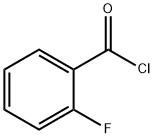
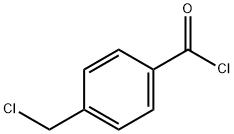
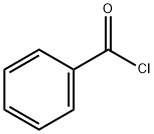


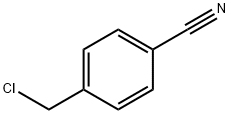

You may like
-
 6068-72-0 4-Cyano-benzoyl chloride 98%View Details
6068-72-0 4-Cyano-benzoyl chloride 98%View Details
6068-72-0 -
 4-Cyanobenzoyl Chloride CAS 6068-72-0View Details
4-Cyanobenzoyl Chloride CAS 6068-72-0View Details
6068-72-0 -
 4-Cyanobenzoyl chloride CAS 6068-72-0View Details
4-Cyanobenzoyl chloride CAS 6068-72-0View Details
6068-72-0 -
 1975-50-4 98%View Details
1975-50-4 98%View Details
1975-50-4 -
 2-HYDROXY BENZYL ALCOHOL 98%View Details
2-HYDROXY BENZYL ALCOHOL 98%View Details
90-01-7 -
 2-Chloro-1,3-Bis(Dimethylamino)Trimethinium Hexafluorophosphate 221615-75-4 98%View Details
2-Chloro-1,3-Bis(Dimethylamino)Trimethinium Hexafluorophosphate 221615-75-4 98%View Details
221615-75-4 -
 14714-50-2 (2-Hydroxyphenyl)acetonitrile 98+View Details
14714-50-2 (2-Hydroxyphenyl)acetonitrile 98+View Details
14714-50-2 -
 118753-70-1 98+View Details
118753-70-1 98+View Details
118753-70-1